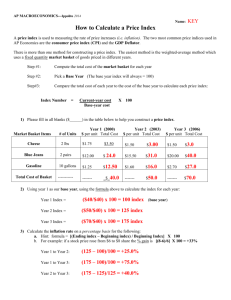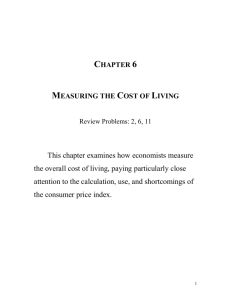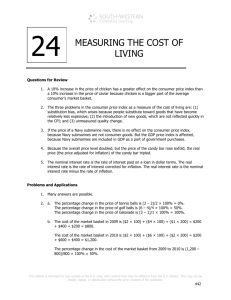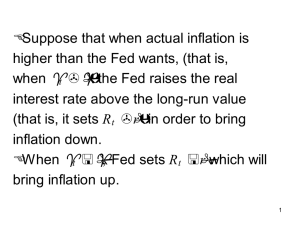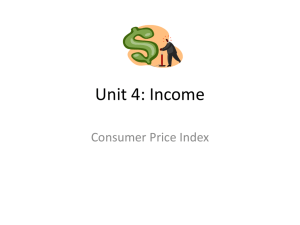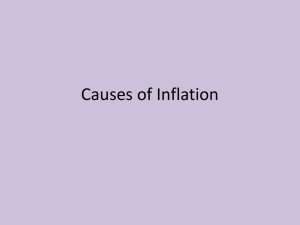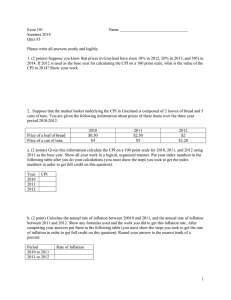Document
advertisement
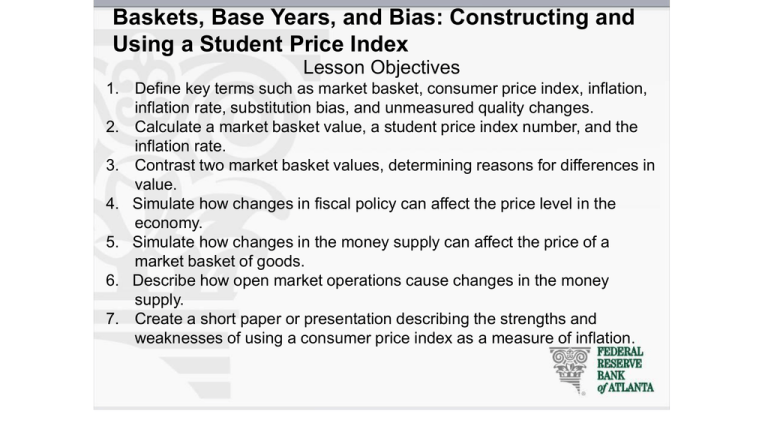
Baskets, Base Years, and Bias: Constructing and Using a Student Price Index Lesson Objectives 1. Define key terms such as market basket, consumer price index, inflation, inflation rate, substitution bias, and unmeasured quality changes. 2. Calculate a market basket value, a student price index number, and the inflation rate. 3. Contrast two market basket values, determining reasons for differences in value. 4. Simulate how changes in fiscal policy can affect the price level in the economy. 5. Simulate how changes in the money supply can affect the price of a market basket of goods. 6. Describe how open market operations cause changes in the money supply. 7. Create a short paper or presentation describing the strengths and weaknesses of using a consumer price index as a measure of inflation. Why does money have value? The Fed Explained Video Series Visual 1: Inflation Simulation Visual 2: What is in the Consumer Price Index market basket? Handout 2 - Student Market Basket Visual 3 - Calculations Record Sheet Analysis and Presentations 1. Merge with another group. 2. Answer question 13 a to f on Handout 1: Student Price Index Instructions. 3. Select a spokesperson. 4. Share answers. Limitations of CPI as a Measure of Inflation • Substitution bias • Unmeasured quality changes • Differences in individual purchasing patterns • Introduction of new goods Comparing Student Market Baskets Match the terms to their definition:: Word Description Services Actions that satisfy consumers’ wants Goods Objects that satisfy consumers’ wants Bureau of Labor Statistics (BLS) Core CPI Inflation rate Inflation Consumer Consumer Price Index (CPI) Agency that collects economic data The CPI less food and energy Percentage change in the average price level A general rise in prices Person who uses goods and services Measures the change in the price level from one time period to another

